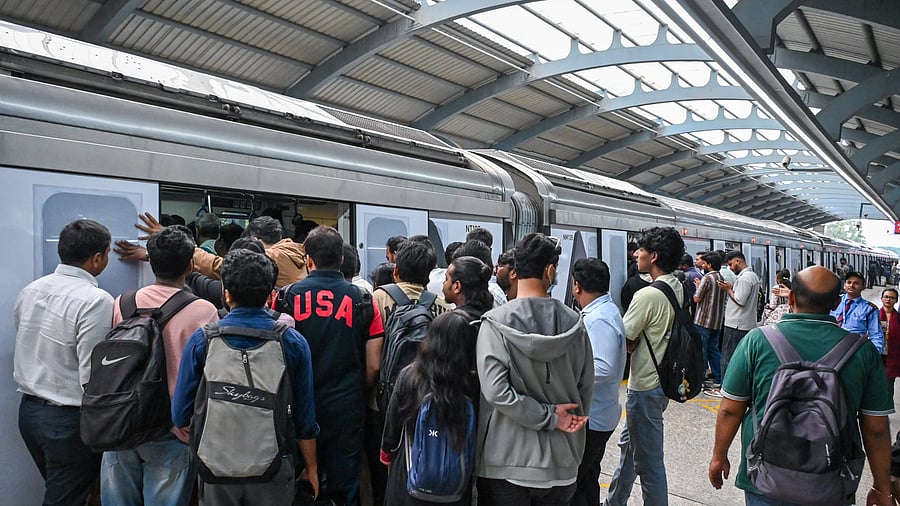
After hiking fares by 51.55% on average this year, the BMRCL will raise ticket prices by up to 5% annually from February 2026.
Credit: DH photo
Bengaluru: The state government’s weak financial position may well have driven the steep hike in metro fares.
In its submission to the Fare Fixation Committee (FFC) seeking a fare hike, the Bangalore Metro Rail Corporation Limited (BMRCL) pointed out that the state may not continue to provide it with Shadow Cash Support (SCS) given its “present financial position”.
The state provides SCS through budgetary allocation for cash loss reimbursement and interest-free sub-debt towards loan payment to the Government of India and domestic financial institutions.
The BMRCL sought the fare revision — the first since June 2017 — citing continuous losses. While revenues have increased gradually, operating costs have also risen due to increase in salaries, energy and maintenance costs, it noted.
Although the BMRCL has recorded profit after interest in recent years, it has outstanding loan liability of Rs 13,106.65 crore and subordinate debt of Rs 21.521.23 crore. Its annual interest liability stands at Rs 128 crore and principal payment obligation at Rs 463 crore.
Between 2025-26 and 2029-30, the BMRCL will face loan payment obligations of Rs 9,651.6 crore and Rs 5,721.6 crore in depreciation costs.
The BMRCL sought an average hike of 105.15%, citing a 133.33% increase in overall costs (energy, staff, outsource service, repairs and maintenance, admin and other expenses) since June 2017.
However, the committee approved only an average hike of 51.55% before discounts across 10 fare slabs. The maximum hike is 71.43%. The fare ranges from Rs 10 to Rs 90.
It also recommended an automatic fare hike of up to 5% every one year from the fare hike. Since the fares were revised in February 2025, the first annual automatic fare hike will take place in February 2026. DH was the first to report the development.
The FFC report was made public on September 11.
Independent mobility expert Satya Arikutharam slammed the 51.55% hike, saying it was far higher than the of 39.6% rise in total cost per kilometre.
The FFC recommended that the BMRCL supplement its farebox revenue through property business, advertisements, kiosks, shop rentals, parking fees, station naming rights, train wrapping, etc.
In 2023-24, the BMRCL earned Rs.50.05 crore from property business, or 8.72% of its farebox revenue of Rs 573.91 crore. With the opening of Phases 2A/2B in early 2027, when the metro network expands to 175.55 km, it expects non-fare box revenue to rise to 10%. Daily ridership will touch 15.86 lakh.
A senior BMRCL official, speaking on the condition of anonymity, said average daily fare revenue would rise from Rs 3 crore to Rs 6 crore with the completion of Phases 2A/2B.